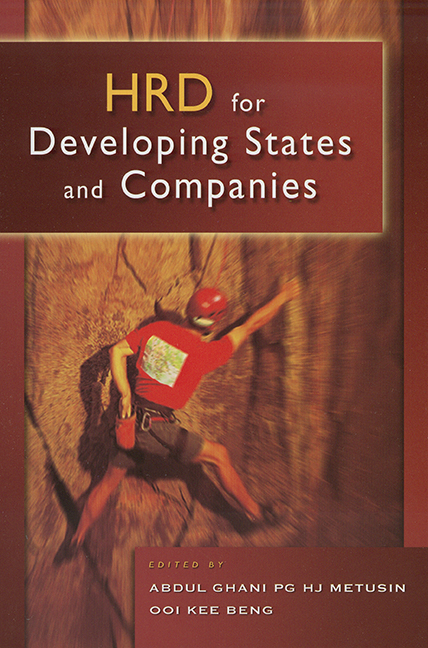Introduction
Published online by Cambridge University Press: 21 October 2015
Summary
Learning is an ongoing process, and in these times learning must involve networking beyond national boundaries. With that in mind, the ASEANEC Management Centre (AEMC) decided to optimize its contacts within the region'sHR community in order to manage a convention that would leave deep and lasting impressions on all involved. This was how the initiative to organize the ASEAN-EC International HRD Convention & Exhibition held on 18–20 January 2005 came about.
There is much we can learn from one another. Being introduced to a variety of perspectives within a single context can often inspire. Our adopted views are then necessarily challenged and their limitations made obvious.
The three-day event was an instructive one where delegates learned from others as much as they taught them. The fact that Her Royal Highness Paduka Seri Pengiran Anak Puteri Hajah Masna consented to officiate at the convention and that Tun Dr Mahathir Mohamad, the former Prime Minister of Malaysia, agreed to deliver the main keynote address were ample proof of how vital the subject of human resource development (HRD) is now considered to be even by statesmen. The conditions for doing business can no longer be considered apart from the challenges of nation building.
A warm word of gratitude must go to the Permanent Secretary at the Prime Minister'sOffice Brunei Darussalam, Pg Dato Paduka Haji Abd Hamid bin Pg Hj Mohd Yassin, for his continued support and advice. Without his persistence, the convention would not have been possible.
Besides Tun Dr Mahathir, seven other speakers delivered keynote papers, including the Minister of Education of Brunei Darussalam, the Honourable Pehin Dato Haji Abdul Aziz, who spoke on the need for continuous learning in order to remain competitive in a world overwhelmed by technological advancement and change. The common message given by all other keynote speakers — Günther Stahl, David Scruggs, Roberto F. de Ocampo, Dr Palan, David Cory and Christopher Mills — was the vital importance of HRD in the New Economy.
- Type
- Chapter
- Information
- HRD for Developing States & Companies , pp. xv - xviPublisher: ISEAS–Yusof Ishak InstitutePrint publication year: 2005



